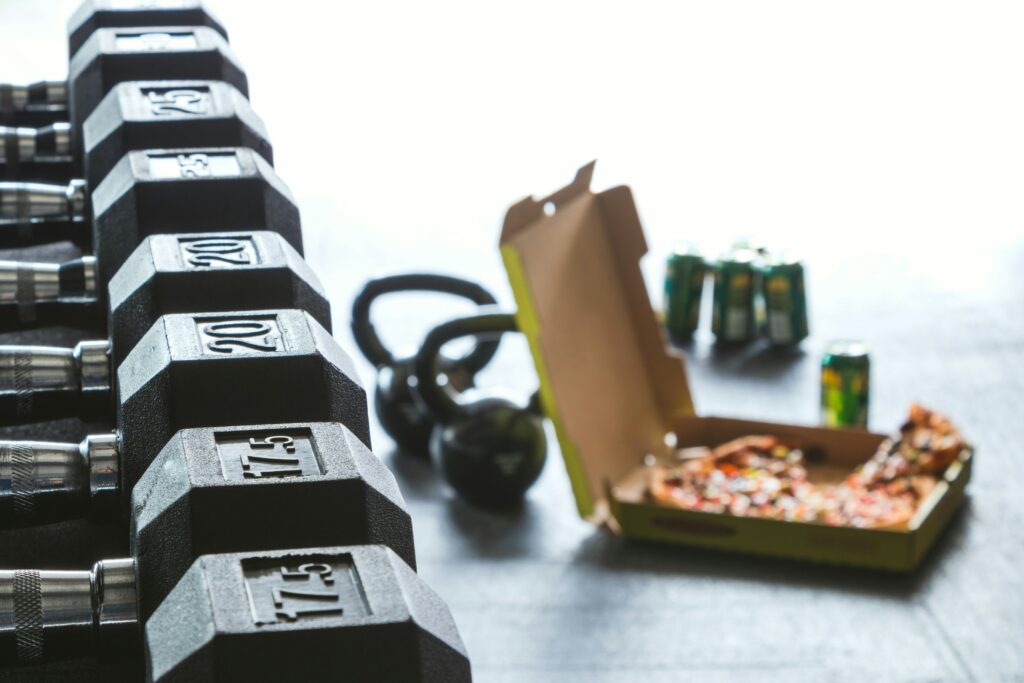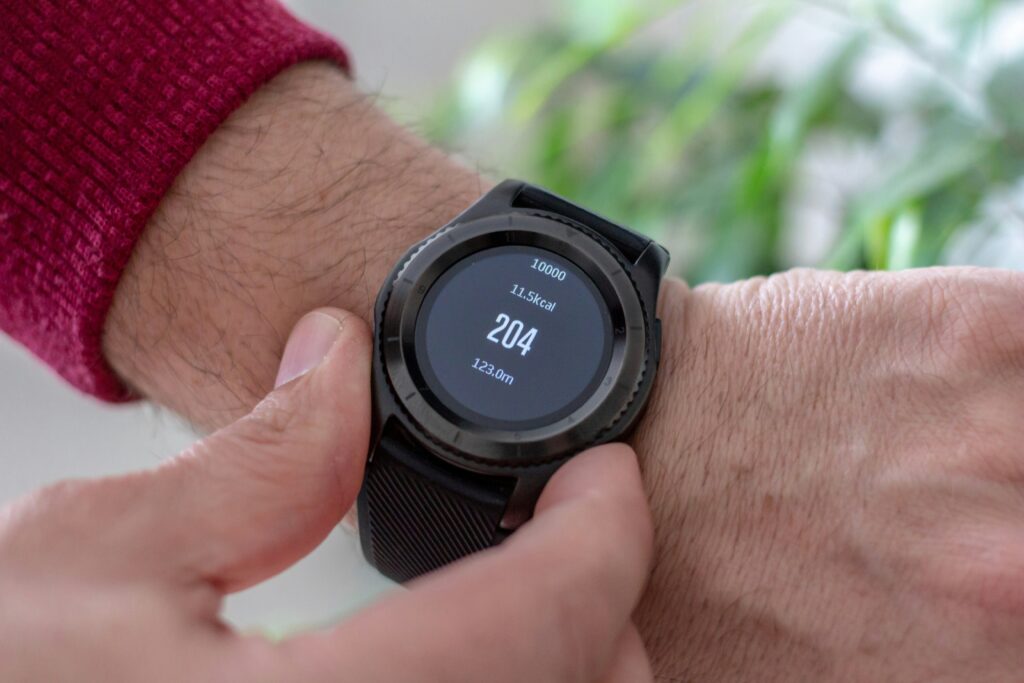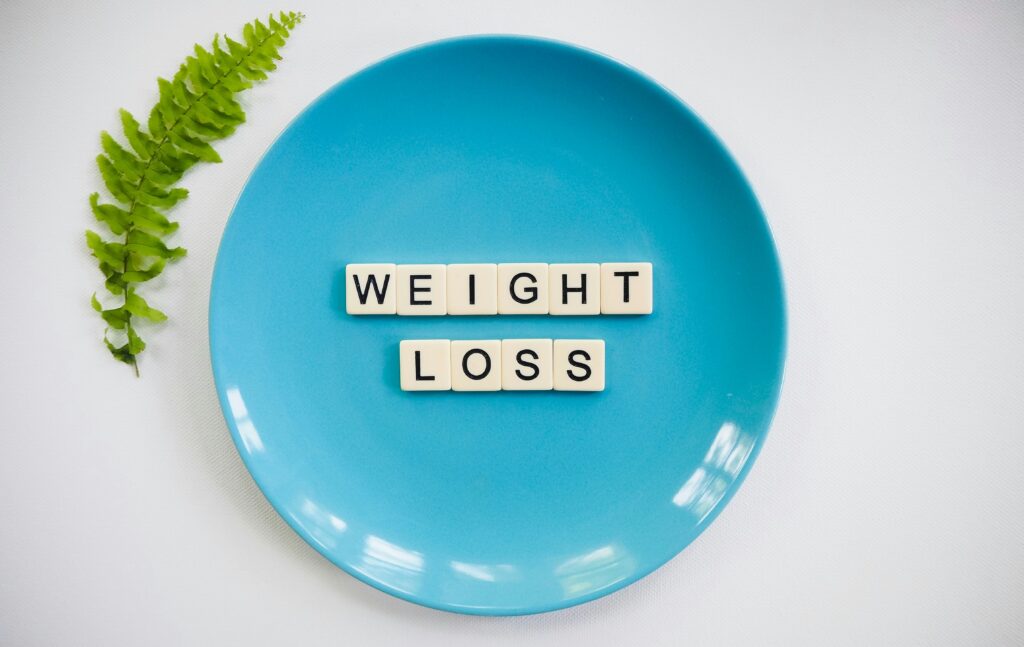
Achieving and maintaining a healthy weight requires more than just a quick diet you have heard on social media. If you need long-term results, you must know how to balance both of them.
A calorie deficit helps your body to burn stored fat. Exercise, on the other hand, will speed up the process. But how exactly do they work together?
Let’s break it down for you.
What are calories, and how to go on a calorie deficit?

Calories are basically the energy we get from food in the form of nutrients.
Just like your car needs fuel to run, your body needs calories that turn into energy for your body to function. This energy is used for everything, breathing, walking, thinking, and even sleeping.
Now, if you eat more than you need, the extra energy is stored, mostly as fat, for later. When you work out or do anything that uses a lot of energy, your body uses those stored calories.
But if you are burning nothing but eating more? You will gain weight.
How many Calories do You Need?
Women typically need at least 1,200 to 1,500 calories daily, while most men need 1,500 to 1,800. This also doesn’t mean you start eating less than this. It may not be healthy, so be cautious.
How does Exercise help you in your weight Loss journey?

There is a direct relationship between exercise and weight loss. When you physically movve more your body it burns calories.
If you are new to exercising, start slow and build up over time. Set your goal that you will do at least 30 minutes of exercise on most days. And if by any chance you’re busy, you can break it into shorter sessions, like a few minutes here and there.
Once you have gotten used to it, you can try longer or more intense workouts.
The World Health Organization (WHO) recommends doing 150–300 minutes of moderate exercise. This can be walking, cycling, jogging, or swimming.
You can also do more intense exercise each week for 75–150 minutes. For instance, you can add 2–3 sessions of strength training, like lifting weights or bodyweight exercises.
Now, it is also important to combine exercise with healthy eating because to lose weight, you have to exercise, as through dieting alone, you can gain it back.
How Calorie Deficit and Exercise Benefit Weight Loss?

The benefits of calorie deficit and exercise together are too many to count. According to the NCBI, they mention in the paper:
“Thirty-six overweight participants were assigned to either exercise plus calorie restriction or calorie restriction alone to determine whether exercise enhanced weight loss efforts. The calorie deficit remained constant during the 6-month trial. Ten percent weight loss was achieved over 6 months in both interventions without a statistically significant difference in the percentage loss of body fat. However, the exercise group had the added benefit of improved aerobic fitness.”
Nothing more to say to her, just know a long-term strategy and you are good to go.
- The Key to Long-Term Weight Management
What is the key to long-term weight management? The synergy between a Calorie calorie-deficient diet and exercise!
Staying active is very important for keeping the weight off, and that too after losing it.
Just like in the report by the National Library of Medicine, it stated that 90% of people who maintained their weight loss said they exercised regularly. The amount of calories they burned was about 383 calories daily.
If you can burn 1,500–2,000 calories a week through exercise, it will support long-term weight maintenance.
Reports also suggest that people who are less active are more likely to gain weight over time. So, you will have to exercise between 150 and 300 minutes a week. Then, you can stay tension-free, and it will help to keep the weight off.
- Try to Focus on Resistance Training
There is one thing you will have to consider: your goal is to lose fat, not muscle.
So, do resistance training, like lifting weights.
It helps keep muscle while you are losing fat. Resistance training, when done alone, can reduce body fat by 1.6%, and when combined with dieting, by 3.8%.
You can start this by training major muscles at least twice a week. Then, you can focus on compound exercises like squats or bench presses that work multiple muscles at once.
Your workouts can be 45–60 minutes. If you’re just starting, you can take it slow to avoid injury.
- Eating Right in a Calorie Deficit
Eating right is significant in Calorie calorie-deficient diet. No doubt you have to eat fewer calories, but you have to meet your body’s needs:
- Protein: They help to protect muscle during weight loss. You can try to eat 1.2–2.2 g/kg, and for athletes, it is more.
- Fat and Carbs: After you have taken your proteins, balance out both fat and carbs. These. You can take healthy fats (20–25% of calories) and fiber (25–30g daily).
- Timing: If you do longer or harder workouts, adjust your meals accordingly; you can eat more on workout days to keep energy up.
Wrapping Up
Calorie deficit and exercise go hand in hand. Both of them can create a strong and lasting impact. A good diet will give your body what it needs, while regular exercise will keep you active, protect your muscles, and bboostyour results.
Are you ready to combine your calorie-smart meals with movement? If not yet, then you should let your healthy transformation begin!

